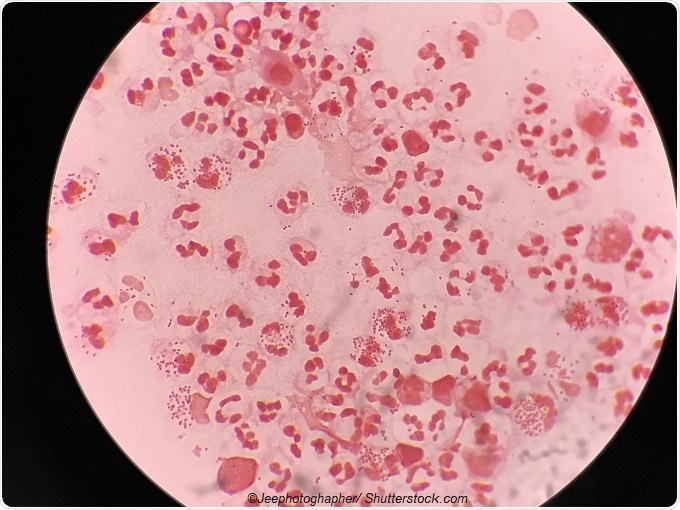Reports from WHO, based on the data collected from 77 countries, reveals that antibiotic resistance of gonorrhea, a common sexually transmitted infection is making the disease much harder and at times impossible to treat.
Dr Teodora Wi, Medical Officer, Human Reproduction, at WHO said: "The bacteria that cause gonorrhea are particularly smart. Every time we use a new class of antibiotics to treat the infection, the bacteria evolve to resist them”.
As per the report, gonorrhea is resistant to older as well as cheaper antibiotics. Cases where infections are untreatable by all available antibiotics are most commonly found by countries with high-income and better surveillance.
Dr. Wi added: "These cases may just be the tip of the iceberg, since systems to diagnose and report untreatable infections are lacking in lower-income countries where gonorrhea is actually more common.”
An estimate of 78 million people are infected with gonorrhea every year. It infects the genitals, rectum, as well as the throat. Pelvic inflammatory disease, ectopic pregnancy, infertility, increased risk of HIV are complications of the disease that affects women disproportionally.

A Gram-negative stain Gonorrhea infection.
The factors that contribute to the increase of gonorrhea are decreasing condom use, increased urbanization and travel, poor infection detection rates, and inadequate or failed treatment.
Trends in the drug-resistant gonorrhea have been monitored by the WHO Global Gonococcal Antimicrobial Surveillance Programme (WHO GASP) and an extensive resistance to antibiotic ciprofloxacin was detected from its data collected from 2009 to 2014. In addition, drug resistant strains were found in the reported data in 97% of the countries.
Other findings of the report include, an 81% increased resistance to antibiotic azithromycin and an emergence of 66% resistance to the extended-spectrum cephalosporins (ESCs) oral cefixime or injectable ceftriaxone, which is, at present, the last-reported treatment.
Currently, for the effective treatment of gonorrhea, ESCs remain the sole available antibiotics in most countries. Yet, in more than 50 countries, the resistance to cerixime and more uncommonly to ceftriaxone has been reported. Subsequently, updated global treatment recommendations which advices the doctors to provide 2 antibiotics, namely, ceftriaxone and azithromycin were issued by WHO in 2016.
With only 3 new candidate drugs in different stages of clinical development, the R&D pipeline for gonorrhea remains comparatively empty. For commercial pharmaceutical companies, the development of new antibiotics seems less attractive than chronic diseases, because it takes only a short period for the treatment. Also, as resistance develops, the antibiotics become less effective, which leads to the need of constant replenishment for the supply of new drugs.
To address the above issue, the Global Antibiotic Research and Development Partnership (GARDP) have been launched by the Drugs for Neglected Diseases initiative (DNDi) and WHO. GARDP is a not-for-profit research and development organization hosted by DNDi. Developing new antibiotic treatments, promoting appropriate use for its long lasting effectiveness and ensuring access for all in need are the main objectives of the organization.
Dr Manica Balasegaram, GARDP Director said: "To address the pressing need for new treatments for gonorrhea, we urgently need to seize the opportunities we have with existing drugs and candidates in the pipeline”. He goes on to suggest that we should aim to speed up the development of drugs in the near future and begin to introduce at least one of the drugs currently in the developmental pipeline. As well as continuing to evaluate the potential use of combination treatments.
Presently, along with the stigma towards sexually transmitted infections, lack of public awareness and training of health workers, act as barriers to effective prevention of gonorrhea. For example safer sexual behavior, especially by the proper use of reliable condoms can prevent the disease.
Increasing public awareness of safer sex practices, ability to recognize the symptoms of gonorrhea and other sexually transmitted infections and increasing the chances by which they seek help, can only be achieved through information, education, and communication.
For the diagnosis of gonorrhea, no affordable, rapid and point-of-care tests are available. Most of the cases go undiagnosed as the affected person may not have any visible symptoms. However, if patients exhibit symptoms like discharge from the urethra or the vagina, sometimes the doctor mistakes it for gonorrhea and prescribes antibiotics. Antibiotic resistance in gonorrhea as well as other bacterial diseases increases due to this inappropriate overuse of antibiotics.
Dr Marc Sprenger, Director of Antimicrobial Resistance at WHO commented: “To control gonorrhea, we need new tools and systems for better prevention, treatment, earlier diagnosis, and more complete tracking and reporting of new infections, antibiotic use, resistance and treatment failures”. He also underlined the need of a vaccine to prevent gonorrhea.